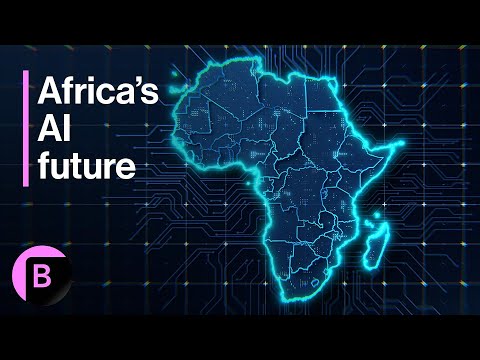Tidjane Dème from Partech discusses the growing integration of artificial intelligence in various sectors across Africa, particularly in fintech and healthcare, highlighting the interest from global firms in local startups. He emphasizes the importance of local investment to support the tech ecosystem and expresses optimism about the resilience of African entrepreneurs in navigating economic challenges.
In the discussion about the application of artificial intelligence (AI) in Africa, Tidjane Dème from Partech highlights the growing presence of AI in various sectors, particularly healthcare and business software. He notes that while many startups are utilizing AI for diagnostics and customer support, they often do not market themselves as AI companies. Instead, they focus on the services they provide, which may lead to a perception that these innovations have emerged suddenly, despite their existing presence in the market.
Dème points out that there has been significant interest from global firms in African startups, particularly in fintech, where AI is being leveraged to analyze unstructured data for lending purposes. He cites the acquisition of a successful AI-driven startup, Instadit, as a sign that international players are recognizing the potential of African technology. This trend indicates that more collaborations between local startups and global companies are likely to occur, further integrating AI into the African tech landscape.
Looking ahead, Dème identifies key trends that will drive investment in Africa, with fintech, e-commerce, and business software continuing to dominate. He emphasizes that fintech alone saw a 60% growth in investment last year, attracting a significant portion of the $3 billion invested in the continent. Additionally, he notes the emergence of climate-related startups and the digitization of sectors like agriculture and mobility, which present new opportunities for growth and innovation.
Despite the challenges posed by a recent downturn in global venture capital, Dème sees this as an opportunity for local investors to step in and fill the gaps left by departing international funds. He believes that the African investment ecosystem can thrive if local capital is mobilized effectively, particularly at the seed stage, to support the numerous startups seeking funding. The need for talent, market access, and capital remains critical for the growth of the tech ecosystem in Africa.
Dème expresses optimism about the resilience of African entrepreneurs in the face of macroeconomic challenges. He acknowledges the volatility that many businesses face but believes that the tech community is well-equipped to navigate these difficulties. The focus should be on building long-term investment infrastructure to support innovation and economic growth, which he views as essential for the future of Africa’s tech landscape.
